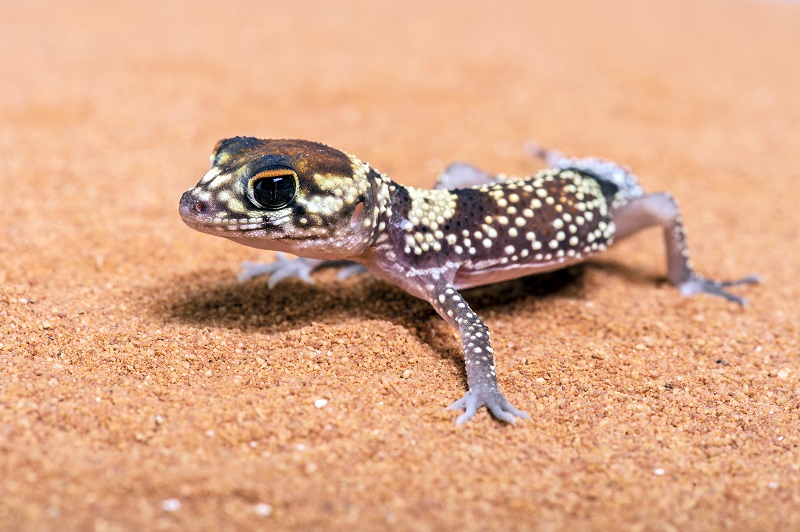All animals are at risk of heat-related stress, even the scaly ones. Here are the precautions you need to take during summer to ensure your reptile stays healthy in the heat.

Maintain the ideal temperature
If you’re a reptile parent, you’re no stranger to the fact that to survive, reptiles need a very specific environment. To ensure they thrive, you may need to change their environment as the weather changes. Depending on the scaly family member you are looking after, the ideal temperature of their enclosure will change so ensure you have an accurate thermometer. In summer though, there are ways to maintain that ideal temperature to avoid heat exhaustion. First, keep your terrarium away from windows or any warm areas in your home. In fact, species that prefer cooler climates might like to stay in a room with air conditioning.
For tropical species, turning off heaters during the day may be an effective way to maintain their temperature. For any outdoor reptiles, of course, provide plenty of shady spaces for them to retreat under. Ensure their terrarium has a ‘warm’ and a ‘cool’ area, allowing your reptile to choose. Look to your local Greencross Vets for the best advice on the ideal temperature for your reptile.
Monitor humidity levels
While we know reptiles (particularly tropical) love the humidity, with summer comes high humidity that can cause your reptile to overheat in their terrarium. If you live in an area that experiences this, adjust your reptile’s ventilation as necessary to maintain humidity – opening vents to allow for airflow. For those living in dryer areas, you may need to increase humidity, which you can do by adding another water bowl or increasing misting.
Keep your reptile hydrated
The best way to avoid heat exhaustion in summer? Drink up! Same goes for your reptile. Make sure your cold-blooded friend always has access to clean, fresh water. For any automatic dispensers, check to sure they are running smoothly. Always keep an eye on your terrarium to make sure there is enough water available to your pet, aiming to fill up several times a day. Ensure the bowls are not too deep to prevent inadvertent drowning.
Signs your reptile is overheating
Of course, to avoid heat exhaustion it’s imperative to stay in the know on the signs to look for if it were to occur. For most reptiles signs include shakiness, disorientation, loss of consciousness or sudden death. For you, this means summer involves even more frequent terrarium check ups than usual. If your reptile shows any of these signs, immediately take them to your local Greencross Vets for adequate care.
For more information on how to protect your reptile from the heat, refer to your local Greencross Vets or ask your local Petbarn team member.






